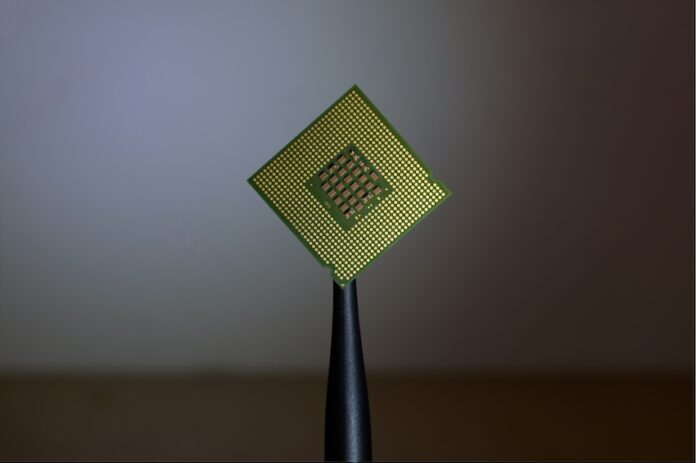The United States could impose a 100% tariff on microchip and semiconductor imports to encourage investment in U.S. manufacturing, President Donald Trump announced on Wednesday. “But the good news, for companies like Apple, is if you’re building in the United States or have committed to build in the United States, there will be no charge,” he said from the Oval Office.
If introduced, a 100% sectoral tariff could impact various sectors in Mexico that export microchips or chip-dependent products to the United States. It could also slow growth in Mexico’s chip-producing states, as foreign companies with nearshoring plans look instead to launch operations in the U.S.
A tech sector divided: Mexico’s chip makers optimistic, auto industry wary
The United States was the main destination of Mexican semiconductor exports in 2024, contributing US $466 million or 75% of Mexico’s chip exports, according to information from Data México.
The Mexican states with the highest sales were:
- Baja California: $348 million
- Jalisco: $111 million
- Coahuila: $56.8 million
- Chihuahua: $32.5 million
- Nuevo León: $18 million
Chip producers such as Intel, Infineon, Skyworks and QSM Semiconductors already operate in the Mexican market, while Qualcomm and other firms have announced investment plans aimed at benefiting from Mexico’s skilled workforce and proximity to the United States.
In October 2024, the Taiwanese firm Foxconn announced plans to develop a massive Nvidia “superchip” plant in Guadalajara in the Bajío state of Jalisco, where 70% of Mexico’s semiconductor manufacturing is based.
That same month, the United States Embassy in Mexico and Canieti presented a joint Master Plan for the Development of the Semiconductor Industry in Mexico for 2024 to 2030, outlining aims to double exports and jobs in the industry.
Shortly after, in November, electronics manufacturing services company Flex announced plans to invest $86 million in a microchips research center in Guadalajara.
Silicon Valley companies plan to invest US $890M in Jalisco in 2025
According to Miguel Ángel Landeros, president of the Mexican Business Council for Foreign Trade (Comce Occidente), companies producing chips in Jalisco and elsewhere in the country for U.S. firms will not be subject to the new tariffs. “[The tariff] is good news because it gives us an advantage over other countries,” he told the newspaper El Informador.
In Landeros’s view, the new tariff announcement — though light on details — does not impact the Mexican semiconductor industry because its primary clients are companies with a significant production footprint within the United States. “Mexico is analyzing the issue… and it is most likely that we will not be affected; we could even obtain benefits under the umbrella of the USMCA treaty itself.”
Mexico’s automotive industry faces a different challenge. While these companies also export primarily to the United States, many of their electrical components may originate outside Mexico, leading industry representatives to expect that the 100% semiconductor tariff will apply to their exports as well.
The tariff will “contribute to an increase in production costs,” said Padilla de León, the general secretary of the National Union of Auto Parts Industry Workers (SNTIA), in an interview with the newspaper El Sol de México.
“The dozens of components that a vehicle carries, from electronic cards to chips… as they become more expensive, will make our vehicles less attractive to the American market, because they will be more expensive.”
With reports from La Silla Rota, Reuters, El Sol del Centro, El Informador and The Hill
